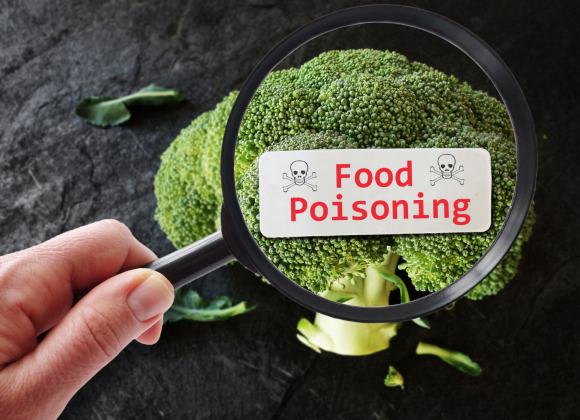Skin allergy can be frustrating — red patches, itching, rashes, swelling, and dryness can appear suddenly and cause discomfort or even embarrassment. While over-the-counter creams or antihistamines may help, many people are turning to natural, chemical-free remedies that can soothe the skin without side effects.
In this blog, we explore the top 10 natural home remedies backed by traditional wisdom and science that may relieve common skin allergy symptoms.
What Are Skin Allergies?
Skin allergies occur when your immune system reacts to certain substances, known as allergens, that come into contact with your skin. Common triggers include pollen, specific foods like nuts or dairy, certain medications, insect bites, detergents, cosmetics, latex, and synthetic fabrics. When exposed to these allergens, your skin may respond with symptoms such as itching, redness, rashes or hives (also called urticaria), dry or flaky patches, and sometimes swelling. These reactions can vary from mild to severe, depending on the individual and the allergen involved.
Top Natural Remedies for Skin Allergies
1. Aloe Vera Gel

Why it works: Aloe vera is anti-inflammatory, antimicrobial, and deeply soothing.
How to use:
Apply fresh aloe vera gel directly to the affected area. Leave it on for 20–30 minutes before rinsing. Repeat 2–3 times daily.
2. Oatmeal Bath

Why it works: Colloidal oatmeal helps reduce itching, redness, and skin inflammation.
How to use:
Add 1 cup of finely ground oatmeal to a warm bath. Soak for 15–20 minutes. Pat dry and moisturize.
3. Coconut Oil

Why it works: Moisturizing and antimicrobial, coconut oil helps heal dry, irritated skin.
How to use:
Use virgin coconut oil on clean skin 2–3 times daily. Ideal for eczema-like rashes and dryness.
4. Neem Leaves (Indian Lilac)

Why it works: Neem has antifungal, antibacterial, and antihistamine properties.
How to use:
Boil neem leaves in water and apply the cooled water to the affected area. Alternatively, use neem paste or neem oil diluted with a carrier oil.
5. Apple Cider Vinegar

Why it works: It restores skin pH and fights bacterial or fungal infections.
How to use:
Mix 1 part ACV with 3 parts water. Dab with a cotton pad and rinse after 10 minutes. Do a patch test first to avoid irritation.
6. Cold Compress

Why it works: It instantly reduces inflammation, itching, and redness.
How to use:
Wrap ice cubes in a soft cloth and apply to the irritated area for 5–10 minutes.
7. Turmeric Paste

Why it works: Turmeric is rich in curcumin, known for its anti-inflammatory and healing effects.
How to use:
Mix turmeric powder with honey or aloe vera to form a paste. Apply to the rash and wash off after 20 minutes.
🔗 Benefits of Turmeric for Skin – Verywell Health
8. Chamomile Tea Compress

Why it works: Chamomile calms irritated skin and reduces redness.
How to use:
Brew chamomile tea, cool it, and use a soft cloth to apply to the skin. Leave it for 15–20 minutes.
9. Baking Soda Paste

Why it works: It acts as an exfoliant and helps relieve itching.
How to use:
Mix baking soda with water to form a paste. Apply for 10 minutes, then rinse. Not recommended for broken skin.
10. Cucumber Slices or Juice

Why it works: Cooling, hydrating, and soothing for allergic rashes.
How to use:
Place chilled cucumber slices on the affected area or apply cucumber juice for 15 minutes daily.
Diet Tips for Allergy-Prone Skin
Your diet matters too. Certain foods have anti-allergic and anti-inflammatory effects:
- Omega-3-rich foods: flaxseeds, walnuts, fish
- Vitamin C: citrus fruits, bell peppers
- Probiotics: yogurt, kefir, fermented foods
- Antioxidants: berries, leafy greens
Avoid:
- Spicy and fried foods
- Preservatives and artificial colorings
- Excess dairy or sugar
When to See a Doctor
While natural remedies can be effective for mild skin allergies, it’s important to see a dermatologist if the rash spreads rapidly, if you experience difficulty breathing, which could be a sign of a serious allergic reaction like anaphylaxis, or if the affected skin begins to ooze pus or shows signs of infection. You should also seek medical attention if there’s no noticeable improvement within 7 to 10 days, as this may indicate a more serious underlying issue or the need for stronger treatment.
Final Thoughts
Nature offers a treasure trove of ingredients to soothe skin allergies gently and effectively. From aloe vera and oatmeal baths to neem and turmeric, these natural remedies are not just affordable but also side-effect-free.
But remember — consistency is key, and a patch test is always wise before trying any new remedy.




